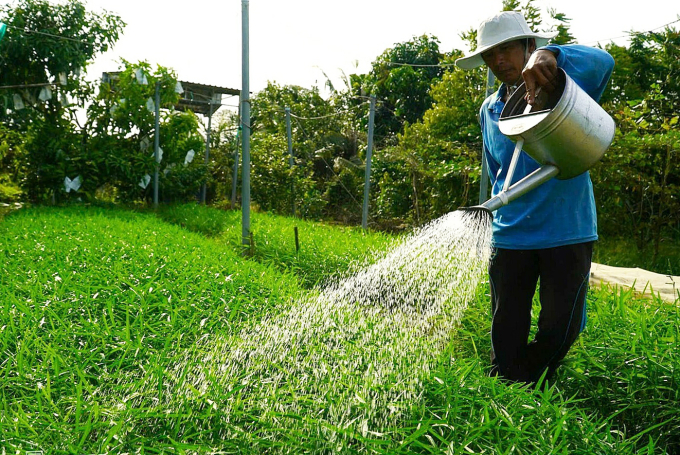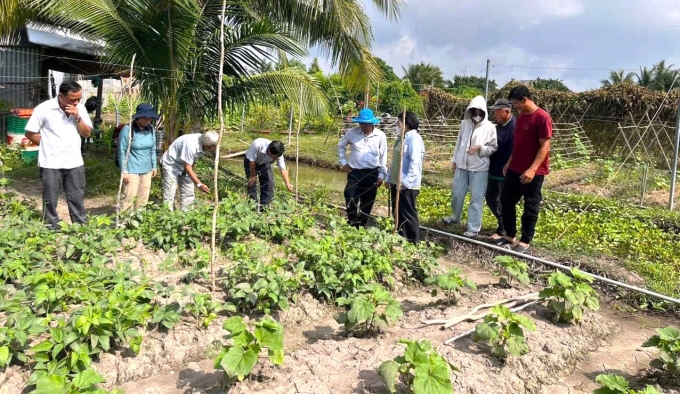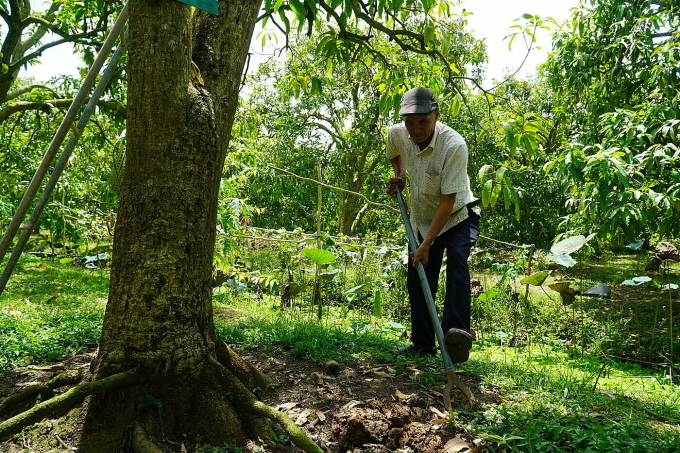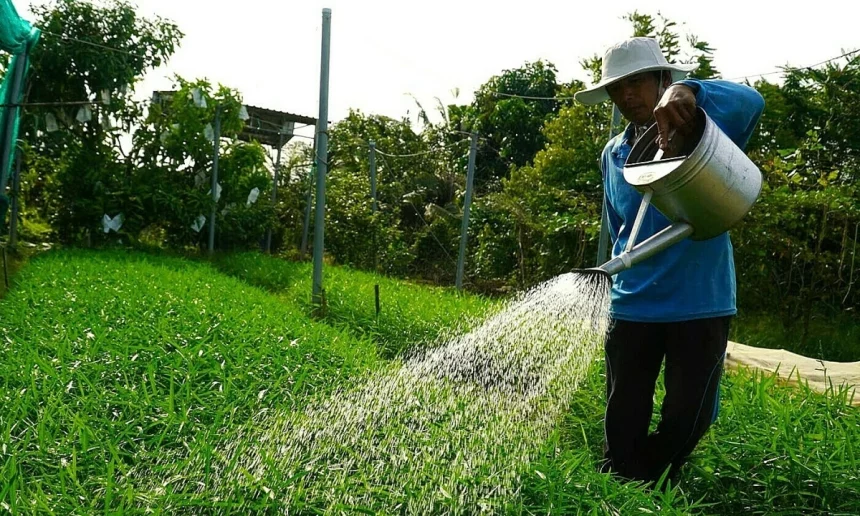Dong ThapOver the past six years, Mr. Bui Van Liem has persisted in growing organic vegetables despite low productivity, precarious output, because he believes that “clean agricultural products are best for consumers’ health”.
In early September, under the light sun in My Ngai ward, Mr. Liem Liem weeded on a garden of nearly 1,000 m2. Young grass is collected for herds, dried old branches and then composted into organic fertilizers. “The plants absorb the substance from the soil must return it to the soil,” he explained.
His vegetable garden absolutely does not use feces, chemical drugs. The fertilizer was incubated by him from cow feces, straw, hay, and a beneficial mushroom to decompose the plant’s residue, creating a rich microbiological environment for the soil. In addition, he brewed snails and fish into foliar fertilizers; pounding garlic, chili mixed with pesticides, planthoppers; Growing flowers around the garden to attract Thien Nam to kill insects.

Mr. Riem takes care of spinach beds, one of more than 20 vegetables he is planting. Image: Ngoc Tai
“The deep deep, then crafted.
The day he just started to grow organic, vegetables and sprouted sprouts were worn. The income decreases because of low productivity, the price is sold across the market. Many times his wife grumbled, he was still persistent on the grounds of “wanting to make clean food for everyone”.
Recently, thanks to the “decent green markets” organized by the Department of Agriculture and Environment of Dong Thap, organic agricultural products cost 2-3 times higher than before, more stable income, profit higher than 20-30% compared to traditional planting. However, not everyone stays. The initial organic vegetable group of Mr. Liem from three people decreased by one, forcing him to join the group in neighboring communes.
From individual households, the province sets up groups and groups to supervise, support and protect brand reputation. Each month, the members meet to share experiences, cross -check, remove non -standard gardens. Agricultural officers regularly encourage, monitor the process, ensure the certification of PGS (Participatory Guarantee System) – a guarantee system to join.

A cross test of members of the organic vegetable production team. Image: Nguyen Khanh
PGS is a community organic certification, applied in many countries, based on the participation of producers, consumers and stakeholders. Different from the certification issued by a third party, Assoc. In Vietnam, PGS is based on the standards of the Ministry of Agriculture and Rural Development (now the Ministry of Agriculture and Environment).
Not only vegetables, organic model spread to mango trees. In Cao Lanh mango area, Mr. Tran Phu Hau and 11 farmers set up safe production cooperative groups in the direction of organic, do not use herbicides and drugs outside the list, gradually reduce chemical fertilizers, ensure the time of isolation before harvest.
After two years, only 6 members achieved certification, the rest were eliminated due to violations, such as sneaking out of the category. Members often “raid” to check each other to protect the general reputation. “One person who does wrong is influencing the whole nest, so it must be serious,” Hau said.
Fragrant organic mango, firm meat, sweet and longer than mango use more fertilizer – which is easy to ripen, liquid intestines, smell and poor taste. In the first year, a enterprise covered 17 tons of mango (25% of output) at a price of 10,000 VND/kg higher than the market, for export processing to Japan.

After the time of planting mango according to the standard of Assoc. Image: Ngoc Tai
At present, Dong Thap has 12 groups of organic farmers under PGS with nearly 30 members. They received the support from the Seed to Table non -governmental organization operated by Mayu Ino (Japanese), including model monitoring, output connection and supporting investment in facilities.
The model of organic vegetable growing has also been to 22 schools, where teachers and students planted as a practical lesson on production processes, labor value and responsibility for consumers.
Mr. Le Ha Luan, Director of Dong Thap Department of Agriculture and Environment, said that the province has implemented the PGS model since 2019, organizing training, supervision and certification. “The strict organic process requires passion and perseverance. We orient to keep the number stable, improve the quality and expand only when there is an isolated farming area, stable output,” he said.
Earlier this month, the Department opened a store selling more than 50 types of vegetables and fruits in Cao Lanh ward, creating more output for farmers.
Ngoc Tai



